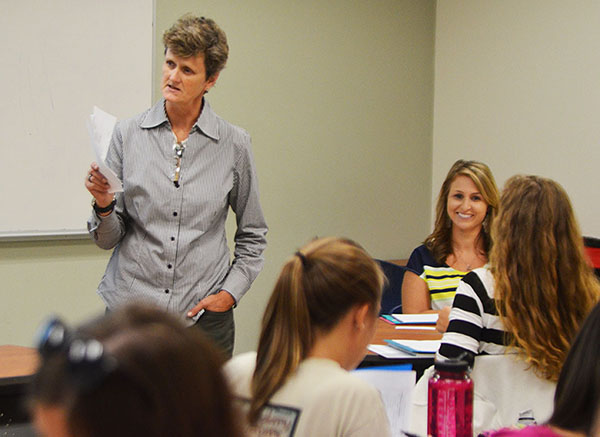
The North Carolina General Assembly passed a budget in July that will have an impact on education across the state.
The new budget eliminates teacher aids and phases out higher pay for teachers with a master’s degree. Current teachers with a master’s degree will be grandfathered in, but students who attain a master’s during or after the 2014-2015 school year will not receive higher pay.
Democrats in the General Assembly were against the budget, and some House Republicans “didn’t want some of the provisions on education – namely ending teacher tenure and phasing out extra teacher pay for advanced degrees – but voted for it anyway,” according to the News and Observer.
McCrory defended the budget in a speech, saying it “spent more on education than last year’s budget and that unexpected costs in Medicaid prevented the state from giving teachers raises,” according to North Carolina Public Radio.
Out of the 346 teachers in the Watauga County School System, approximately 40 percent currently have a graduate degree, said Marshall Ashcraft, Watauga County Schools public information director.
This figure is expected to decrease with the passing of the new budget.
Derrick Jones, an Appalachian graduate and current social studies teacher at Watauga High School, said he told his students to think twice about going into education.
“Most teachers feel like they were better off ten years ago economically than they are today,” Jones said.
Dean Emeritus of the Reich College of Education Charles Duke said he expected an initial drop in the number of new students pursuing a master’s degree.
“It’s really a slap in the face to teachers to say that you don’t need advanced education,” Duke said. “There’s no point in it, and we don’t value it.”
Duke said that the UNC system produces about 5,000 teachers per year, but that 9,000 are needed.
“That’s why this is so surprising is that when you need teachers, as many as you can get, why would you do something like this?” Duke said. “Because the student population in North Carolina is not declining.”
Communication from the legislature has also been a concern for Duke.
“The legislature really did not provide any guidance in terms of what school districts should do or what they should tell their teachers,” Duke said.
The Reich College of Education is working to help students who are close to finishing by the first of the year so that they will qualify to receive benefits for their master’s, Duke said.
“It’s really sad in terms of looking ahead to the future and what we need for a teaching force,” Duke said. “I just don’t know what they had in mind about encouraging people to go into the profession.”
Story: NICOLE BELLAMY, Intern News Reporter
Photo: MAGGIE COZENS, Staff Photographer

